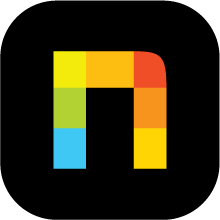Over the past few years, extended reality (XR) technologies have become more popular than ever. And its scope reaches across industries like vehicle design, e-commerce, and healthcare—just to name a few.
XR, which encompasses technologies like virtual, augmented, and immersive realities, has helped transform the world of 3D content into interactive experiences. The emerging digital space—the metaverse—could generate $5 trillion in value by 2030, according to McKinsey, which declared the virtual world “too big for companies to ignore.”
As a result, real-time 3D jobs are among the most in demand within the tech industry. According to Unity’s vice president of Education and Social Impact, Jessica Lindl, demand is 50% higher than traditional IT jobs—adding that salaries for real-time 3D jobs are 60% greater.
While many tech companies are now growing their teams in this space, Unity has been part of the immersive digital world for years. In fact, in 2015, Fortune declared Unity as dominant in the VR space. But the company is perhaps best known in part for its leading role in the video game industry. Its services are utilized by popular franchises such as Among Us and Call of Duty.
With an ever-changing tech industry, training the next generation of experts remains a priority for the company. Unity offers multiple ways for people to get ahead as developers, programmers and artists through programs such as certifications, school partnerships, and even free online pathways to learn game development.
“We want to provide really simple on ramps and pathways that will lead you into entry level jobs so that at any point in your career, you can decide to transfer into the industry,” Lindl says.
Fortune sat down with Lindl to learn more about her view of the future of education in the context of A.I., in-demand skill transformation, and more.
This interview has been edited for brevity and clarity.
An evolving landscape
Fortune: What is the current state of education?
Lindl: The 21st century economy is incredibly fluid. We’ve got an average tenure of four years with each employer at this point. So there’s continuous rescaling and upskilling that’s happening. Prior to even the advent of the large language model (LLM) explosion, last year, there were already massive forecasts around the need to continuously upskill and rescale.
The reality is, learning is happening continuously throughout our lifetime, and it’s happening in many different places besides school. One of those places is actually within gaming. So I’ve had the privilege to run a learning game company—prior to this role at Unity that I took on six years ago—and what I learned from that experience was that what players were learning from very well designed games were the exact skills that are required for 21st century careers. So, communication, collaboration, growth, mindset, and flexible thinking.
Fortune: How is Unity addressing the evolving educational and technological landscape?
Lindl: The strategy that we’ve created at Unity is threefold. So the first is if you are privileged enough to be in a four-year degree program, or even in high school, we want to make it as easy as possible for you to become a professional creator further down the road in your career. And we have more than 700,000 students now around the world who are actively learning unity with, you know, either on their own or with their educators with that methodology.
Then the second strategy is really around adults and workforce and reskilling and upskilling. So we want to provide really simple on ramps and pathways that will lead you into entry-level jobs so that at any point in your career, you can decide to transfer into the industry, and that’s where you see learn.Unity, as the platform where we where we have hundreds of thousands of adults who are actively rescaling into these jobs.
And thirdly, both of those strategies really lead into certifications and credentials that are signals to our employers, which are our customers, to be able to use this new talent into their companies. Or oftentimes, we see that this talent is very entrepreneurial, starts their own indie studios, either in gaming, industry, or education or all other areas.
In-demand skills: technical and durable
Fortune: What are some of the top skills employers are looking for, and thus people are seeking to be retrained in?
Lindl: So when they’re coming to look for careers—within real-time 3D—there’s two big buckets of skills. So, how are you creating 3D assets? How are you thinking about rendering the actual physics of the experience creation, the publishing, the analytics, the monetization—so that whole bucket is technical skills that you’ll find in all of our courses and pathways.
There’s an equally important bucket of oftentimes called soft skills, or I like to call them durable skills, because soft just feels too soft to me. These are the skills that really are in super high demand: your ability to communicate effectively, your ability to collaborate and work with a team, this flexible growth mindset. So, we also teach these skills within these pathways as equally as we do the technical skills, because it’s what our employers require when they’re looking at candidates and recruiting and interviewing.
A future with A.I.
Fortune: Generative A.I. tools are redefining how many students learned inside and outside of the classroom. How do you see A.I. being used in the world of education moving forward?
Lindl: I think the key question for all of us is can an A.I. tutor be just as impactful as a human tutor? This isn’t what we’re seeing right now with ChatGPT, which is more of a question and answer approach. It’s really leveraging the power of prompt engineering to train the A.I. to truly teach creativity with Socratic method and different education pedagogy approaches so that you really feel like this personal creativity tutor is teaching you how to create in a more effective way. And so that’s kind of the first use case for how we see the power of A.I.
The second of course, is how do we just make you more productive and your experience much higher in quality? So again, that’s where you’re seeing the products we have in beta. And then I think, the most exciting thing and timely thing that we have right now is we’ve just created a partnership with Layer AI. And if you’re not familiar with Layer AI, it’s an A.I. tool that helps you very quickly create third party assets. So, any student who signs up for the student plan is able to also get for free Layer AI for the next six months, so they can start creating more quickly and higher quality experiences.
Fortune: Is it important for students to know how to use A.I. tools as they look toward the job market—especially in the 3D modeling space?
Lindl: Yes, and I have a strong opinion that this is students of all ages using this moving forward, because our brains are incredibly malleable and flexible.
We saw with a calculator decades ago, and as we’ve seen with Google and search 20 years ago, the way that we learn has changed as a result of these technology tools. And so we want the power of human learning, and A.I. learning to happen collaboratively with everybody so that they can become more effective at what they’re trying to do. However, I will buttress this with also respecting what the educator wants to influence.
Fortune: What’s your elevator pitch to a prospective student interested in the 3D modeling industry, especially in the light of the future of the tech world?
Lindl: You’re already playing a ton of games, you have been most of your life, you’ve also probably started modding those games. So continue on that trajectory, and really explore the opportunities within real-time 3D learning overall, and you’re gonna get incredible technical skills. More importantly, you’ll get incredible durable skills, like communication. And if you decide not to enter into this industry, no problem, because those skills are the exact skills that are in high demand for all of the other industries you may be passionate about.








